Do you have a question about the Cisco Nexus 9300-FX and is the answer not in the manual?
Identifies the target audience for this publication, including hardware installers and network administrators.
Details command description conventions used in the manual, including bold, italic, and bracket notations.
Lists relevant Cisco ACI and Nexus documentation available on Cisco.com for further reference.
Provides contact information for submitting feedback or reporting errors in the document.
Explains how to obtain Cisco documentation and submit service requests, including using the BST tool.
Specifies the acceptable ambient operating and non-operating temperature ranges for the switch.
Outlines the acceptable relative humidity levels for switch operation and storage to prevent moisture damage.
Details the maximum altitude at which the switch is tested and rated for operation.
Recommends precautions to prevent dust and particle contamination that can affect switch performance.
Provides guidelines to reduce EMI/RFI that could affect other devices or the switch itself.
States that the switch has been tested for shock and vibration resistance for operating ranges and handling.
Explains the importance of and methods for properly grounding the switch chassis for voltage protection.
Details the switch's power supply configurations and the power provisioning needed from the source.
Describes how the switch's airflow direction (intake/exhaust) must align with cold/hot aisles for cooling.
Specifies the types of racks and cabinets suitable for installing the switch and their dimensional requirements.
Defines the necessary space around the chassis for installation, cable routing, airflow, and maintenance.
Highlights important safety instructions and warnings to be followed before installing or servicing the equipment.
Describes the types of racks (EIA, perforated, open) compatible with the switch and rack-mount kit.
Explains how fan and power supply module airflow direction affects placement in cold/hot aisles.
Provides general best practices for installing the switch, including recording information and ensuring proper clearance.
Details the steps for unpacking the switch and inspecting it for damage or missing components.
Outlines the procedure for physically installing the switch into a rack using mounting brackets and slider rails.
Provides specific instructions for mounting the switch into a two-post rack using standard mounting brackets.
Explains how to establish a proper earth-ground connection for the switch chassis for safety and protection.
Guides the user through connecting power and verifying initial boot-up status and LEDs after installation.
Describes the main components of an ACI fabric: APICs, leaf switches, and spine switches.
Lists considerations for connecting fabric devices, including cabling, distance, and equipment.
Details how to connect Cisco Nexus leaf switches to APIC appliances using appropriate interface cards.
Explains how to connect leaf switches to spine switches in the ACI fabric for optimal forwarding.
Guides users on setting up a console interface for initial switch configuration using VT100 terminal emulation.
Describes how to establish an out-of-band management connection for monitoring and troubleshooting.
Provides guidelines for keeping transceivers and fiber-optic cables clean and ensuring their proper maintenance.
Details the procedure for replacing a fan module in the switch, including hot-swap guidelines and airflow matching.
Explains how to replace power supply modules for redundancy, matching wattage and airflow direction.
Provides step-by-step instructions for removing and installing an AC power supply module.
Lists the types of cabinets and racks suitable for switch installation, including perforated, solid-walled, and open racks.
Specifies the standard 19-inch EIA cabinet/rack requirements and mounting rail conformity.
Details dimensional and clearance requirements for mounting the switch in an open rack environment.
Outlines perforation patterns and open area requirements for perforated cabinets to ensure adequate cooling.
Offers recommendations for managing cables within the rack to facilitate routing and maintenance.
Lists operating and non-operating environmental parameters such as temperature, humidity, and altitude.
Provides the physical dimensions (width, depth, height) of the Cisco Nexus 9348GC-FXP switch.
Details the weight and quantity of the chassis, fan modules, and power supply modules.
Directs users to resources for determining supported transceivers, adapters, and cables for the switch.
Lists typical and maximum power consumption values for the switch and its power supplies.
Provides detailed electrical specifications for the 350-W AC and 440-W DC power supply modules.
Specifies the power cables to order and use with AC power supplies, including locale-specific part numbers.
Lists the safety and EMC compliance standards that the switch adheres to.
Describes the status, color, and meaning of the BCN, STS, and ENV LEDs on the switch chassis.
Explains the LED indicators on the fan modules, including status and operational states.
Details the LED indicators on the power supply modules, showing status, power output, and fault conditions.
Lists and illustrates the contents of the two-post rack-mount kit (NXK-ACC-KIT-2P).
Lists and illustrates the contents of the 1RU rack-mount kit (NXK-ACC-KIT-1RU).
Lists and illustrates the contents of the 1RU rack-mount kit (N3K-C3064-ACC-KIT).
Lists and illustrates the contents of the accessory kit, including ground lug kit and compliance documents.
Provides a checklist of planning activities for site evaluation, environmental assessment, and power/cable assessment.
Offers a worksheet to record essential contact and site information for the installation process.
Provides worksheets for recording switch contract, serial, product numbers, network configuration, and module details.
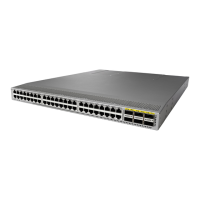

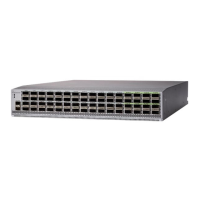

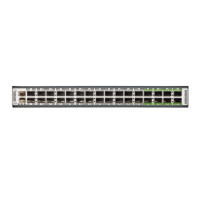



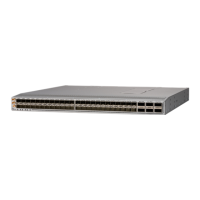


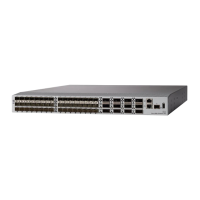
